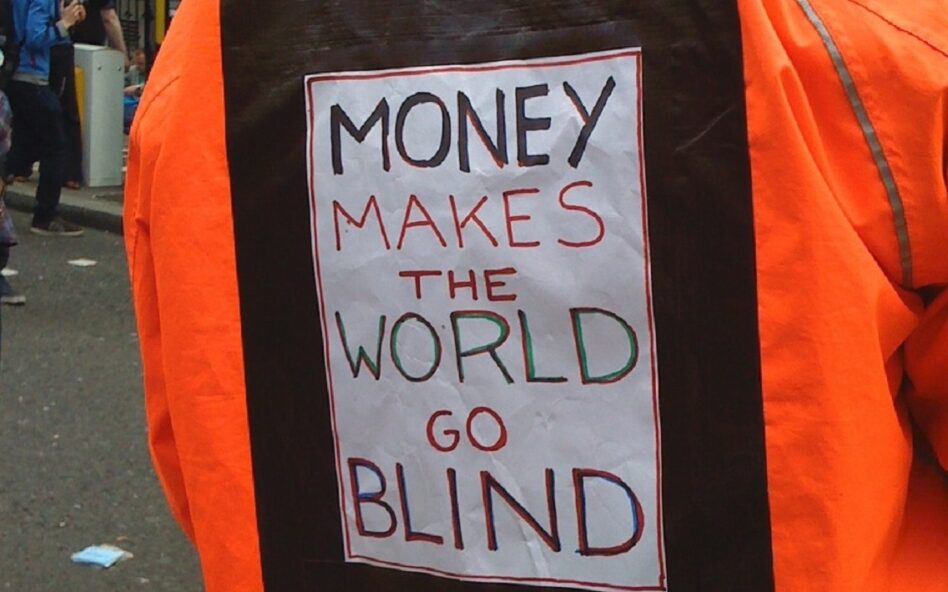
Published in MalayMail , Focus Malaysia & Business Today, image by Focus Malaysia.
As election season looms over the horizon, Malaysians are reminded on how money is deeply intertwined in the game through the nexus of business and politics. No doubt Malaysia requires reforms on many fronts, but if there is a priority list, depowering the influence of money on politics would be on top.
After all, as the saying goes, the love of money is the root of all evil.
Malaysia is in a dire situation, and choosing the right candidates and the right parties are crucial decisions that greatly influence the trajectory of Malaysia’s future. So far, no one who had the chance to be in power was able to enact necessary reforms to meaningfully empower a law on political financing.
The issue of political financing is an old one. Let’s look at Malaysia’s disappointing history on the matter.
A publication by Professor Dr Edmund Terence Gomez and Joseph Tong dated June 18, 2021, in the Journal of the Malaysian Parliament pointed to allegations of RM200-300 million spent by a political party during the 1993 party election, and reports of a candidate spending RM6 million in 1996 to secure the division chairman post.
Gomez, who is the Dean of Faculty of Economics and Administration at the University of Malaya published “Electoral funding of general, state and party elections in Malaysia” back in 1996. His writings are widely available online for public view.
Unfortunately, the lure of making big bucks from the mutually-corrupted interest between politicians and businesses is too great to resist, and writings by Gomez would appear to be (intentionally) overlooked by lawmakers to this day.
Calls for political financing laws, particularly donations and election reforms grew louder between the years 2008 to 2009. Surprisingly, it was former Prime Minister Datuk Seri Najib Razak, who, at that time, called for a reformation of political financing and even stopping patronage politics.
Obviously, nothing came out of it. As we all know, Najib has been brought to trial because of the large sums of money apparently “donated” from the Middle East directly into his personal account, and who is still pretty much seen by the public as the biggest patron in UMNO (the real “bossku”).
Even so, civil society didn’t give up. Transparency International Malaysia (TI-M) researched the status and landscape of political financing between 2009 to 2010, and on May 5, 2011, TI-M submitted its memorandum on political financing reforms to Najib, with 22 key recommendations.
As expected, nothing came out of it too.
By the 2013 general election, the amount of money used for both general and state elections grew even larger, and as mentioned by Gomez and Tong in a 2021 publication: “…Both the BN and opposition coalitions now solicit money from businesses”.
Unsurprisingly, Malaysia reportedly ranked fifth-lowest among 54 countries surveyed in The Money, Politics, and Transparency Campaign Finance Indicators (MPT) 2014.
As a response, in December 2014, Najib (again) reportedly pushed for political funding to be regulated for all parties, whereby it would require a joint effort between the ruling government and opposition, as reported by TI.
Clearly, it was too late. By 2015, the entire 1MDB scandal surfaced, and a whopping RM2.6 billion had reportedly been directly channeled from the Middle East into Najib’s personal bank account.
Responding to widespread criticisms, Najib then instituted a National Consultative Committee on Political Financing to offer reform suggestions. This move took place despite earlier reform suggestions by various parties in nearly a decade before – suggesting or implying that these would not suffice.
Although this could be an attempt to portray sincere concerns on the matter, it looked more like what the Malays refer to as “sandiwara”, a dramatic and hypocritical show.
Despite it all, people took this seriously. In 2015, TI-M republished a summary of its key recommendations, covering 1) state funding, 2) regulation for reporting of political financing, 3) full disclosure of political party and candidate financing, and 3) regulating political donations.
As reported by Gomez and Tong, over 70 NGOs submitted to Najib a comprehensive proposal on political financing reforms in 2016. The proposal included the enactment of a Political Donation and Expenditure Act to provide greater transparency and accountability in political funding.
Yet again, these politicians wasted people’s time and efforts, as nothing happened from these slews of recommendations. Instead, the said committee released a report on the matter which reportedly was a watered-down version of the original proposal from the NGOs.
According to Gomez and Tong, the committee removed funding limits, excluded the necessary institutional reforms (Election Commission and other relevant agencies) and mechanisms to curb the abuse of money in elections.
These were reportedly publicly endorsed by Barisan Nasional (BN) and despite the diluted recommendations, nothing happened for nearly a year.
The bar of political will is truly low.
As reported by the CEO of the Institute for Democracy and Economic Affairs (IDEAS), Tricia Yeoh, the Pakatan Harapan coalition released its election manifesto in 2018, which included a commitment to introduce a Political Finance Control Act with principles similar to previous recommendations.
After former Prime Minister Tun Dr Mahathir Mohamed returned to power in 2018, the National Anti-Corruption Plan was launched in January 2019, and finally, in that year there were talks of a Political Funding Bill covering the regulatory aspects of monetary contributions in politics.
However, Tricia noted that as of July 2021, the civil society or Members of Parliament have yet to be consulted by the National Centre for Governance, Integrity and Anti-Corruption (GIACC) in drafting the legislation.
What is taking them so long?
Even in the absence of public consultation, as of June 18, 2021, Gomez and Tong published “Financing Politics in Malaysia: Reforming the System” in the Journal of the Malaysian Parliament, which the government could easily refer to in drafting the proposed legislation.
There are no reasonable explanations other than the Pakatan Harapan government was also sitting on it.
Consequently, nothing happened throughout 2021.
Change in governments over a short period of time may have disrupted the process, but it certainly is not an excuse. Politicians simply did not put it as a top priority when they had the chance.
The issue dragged on and by October 2021, it was reported that embattled MACC’s Chief Commissioner explained that the GIACC was still drafting a law on political funding, which would then be tabled to the Special Committee on Corruption. It was reported that the draft covers the reporting and declaration of funds, and establishing a political fund “regulator”.
Why is drafting the law and tabling it taking so long? If the politicians wanted to do this, they would have.
The absence critical mass of politicians and lawmakers with the will to make it happen confirms the firm strangle that money has on politicians from all sides.
By December 2021, Gomez, who has been writing on this issue since the 1990s and widely quoted in this article, resigned from the MACC’s Consultation and Corruption Prevention Panel, reportedly as an objection to the panel’s apparent indecision in relation to the allegations surrounding a high-ranking MACC official.
It would appear that even our best brain and expert on the matter has had enough.
It is crucial to monitor and regulate the money trail, especially now during election season. However, without enacting the reforms needed, we can expect money to still dictate the shape of Malaysia’s political landscape.
Therefore, any candidate and/or party representing a real and believable commitment to push for financial prudence and transparency is a game-changer. This should be one of the key criteria for the people to vote as they evaluate political candidates and the parties they are representing.
Ameen Kamal is the head of Science & Technology at EMIR Research, an independent think tank focused on strategic policy recommendations based on rigorous research

